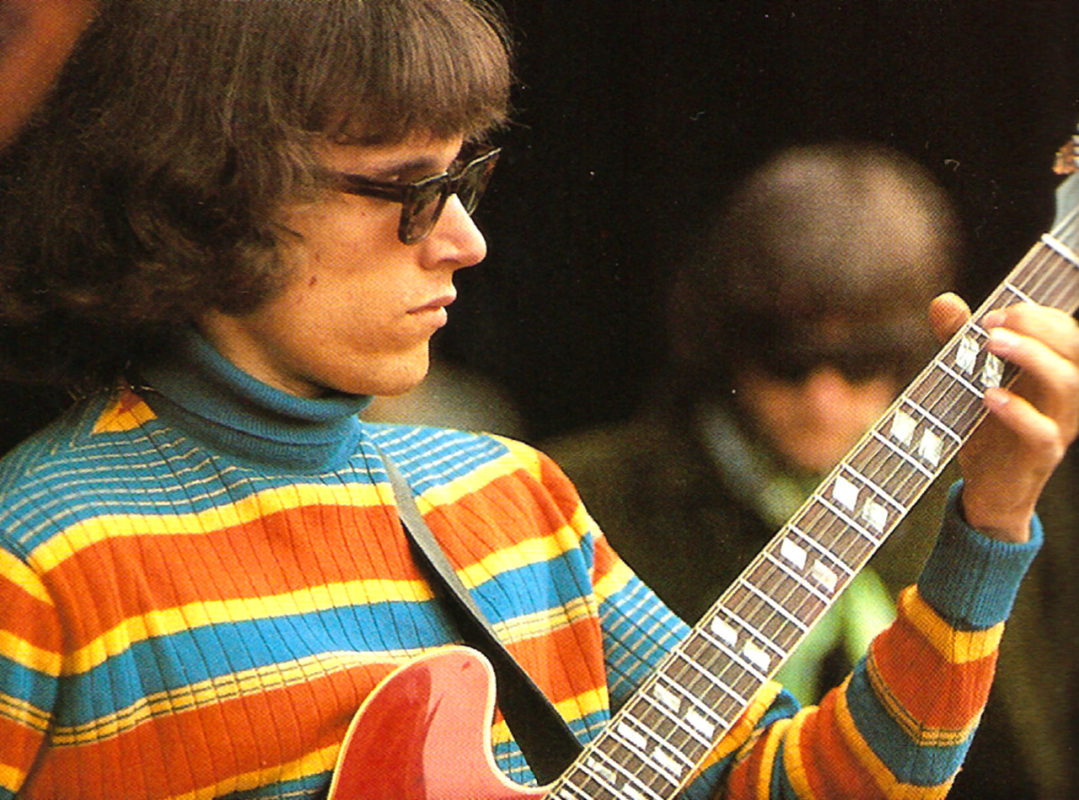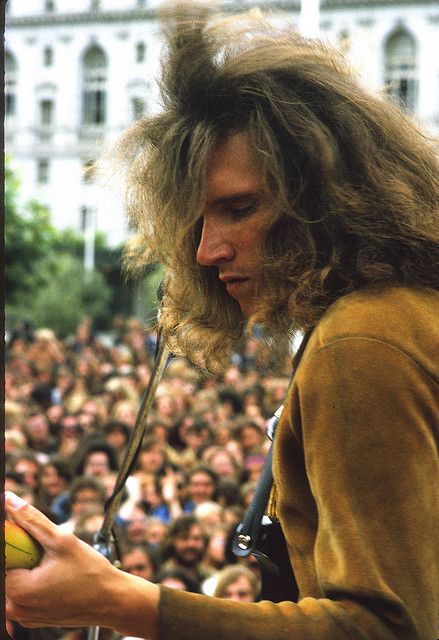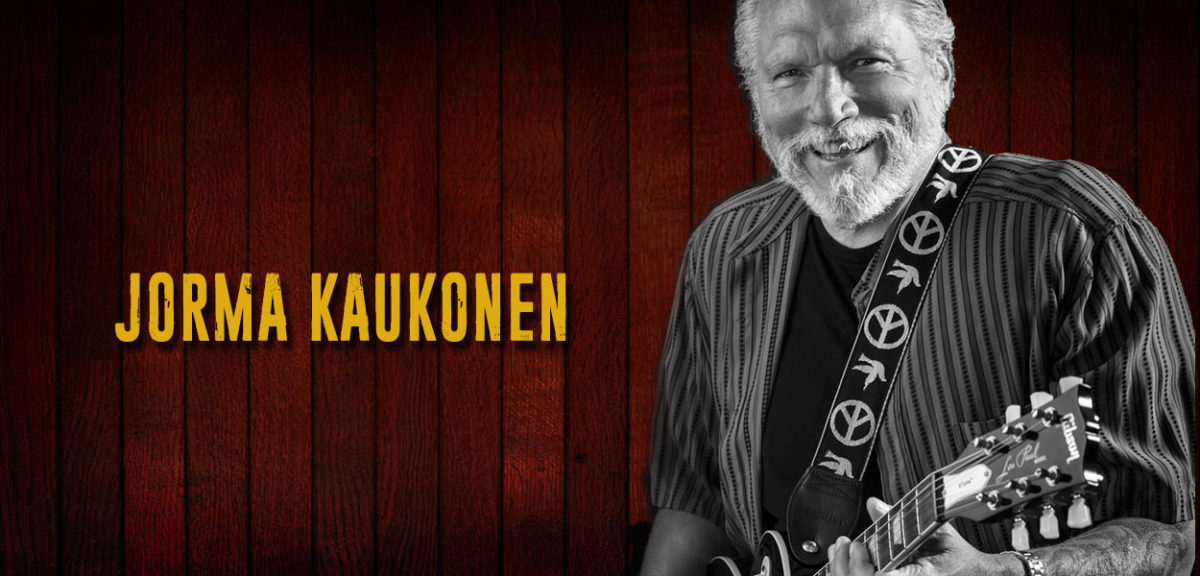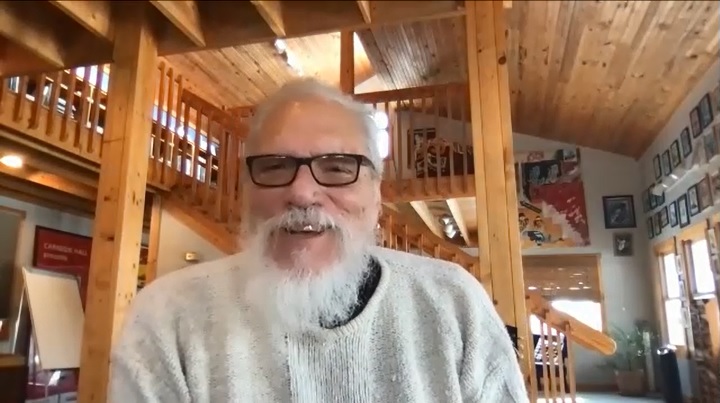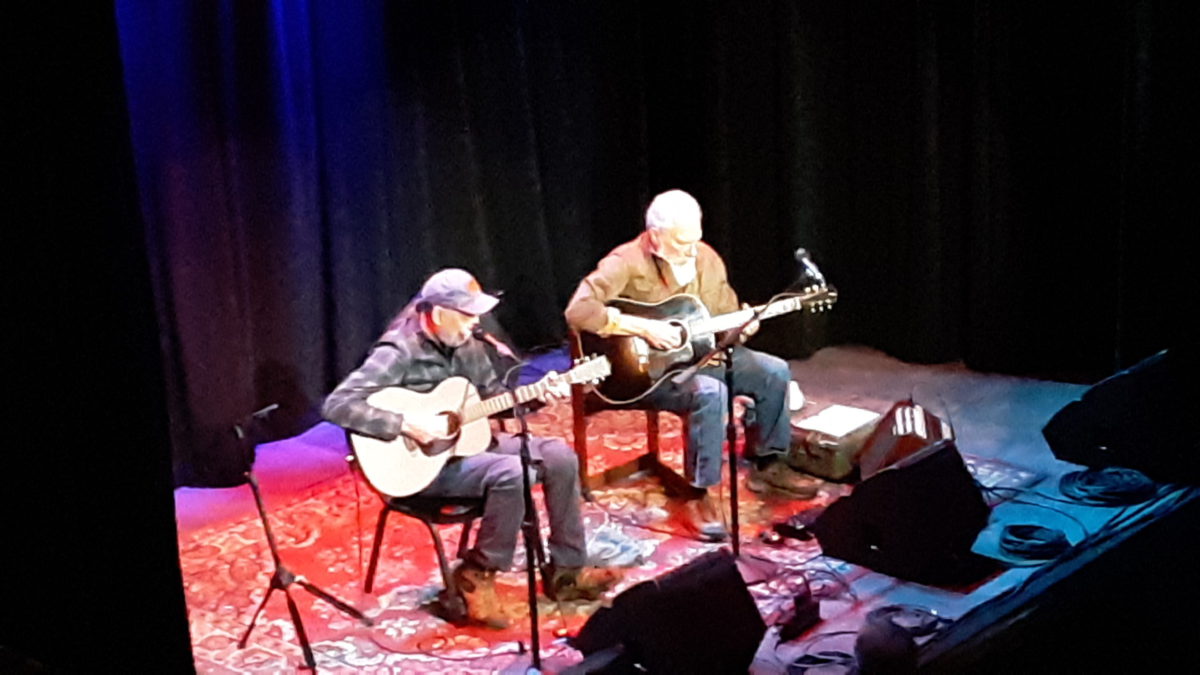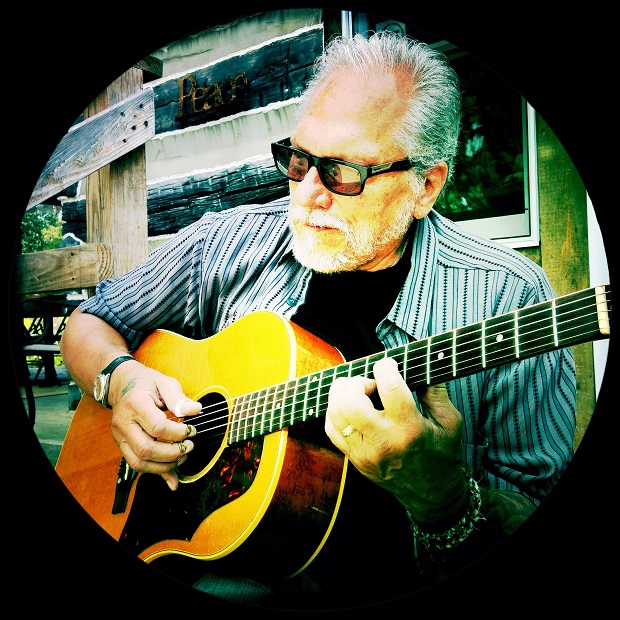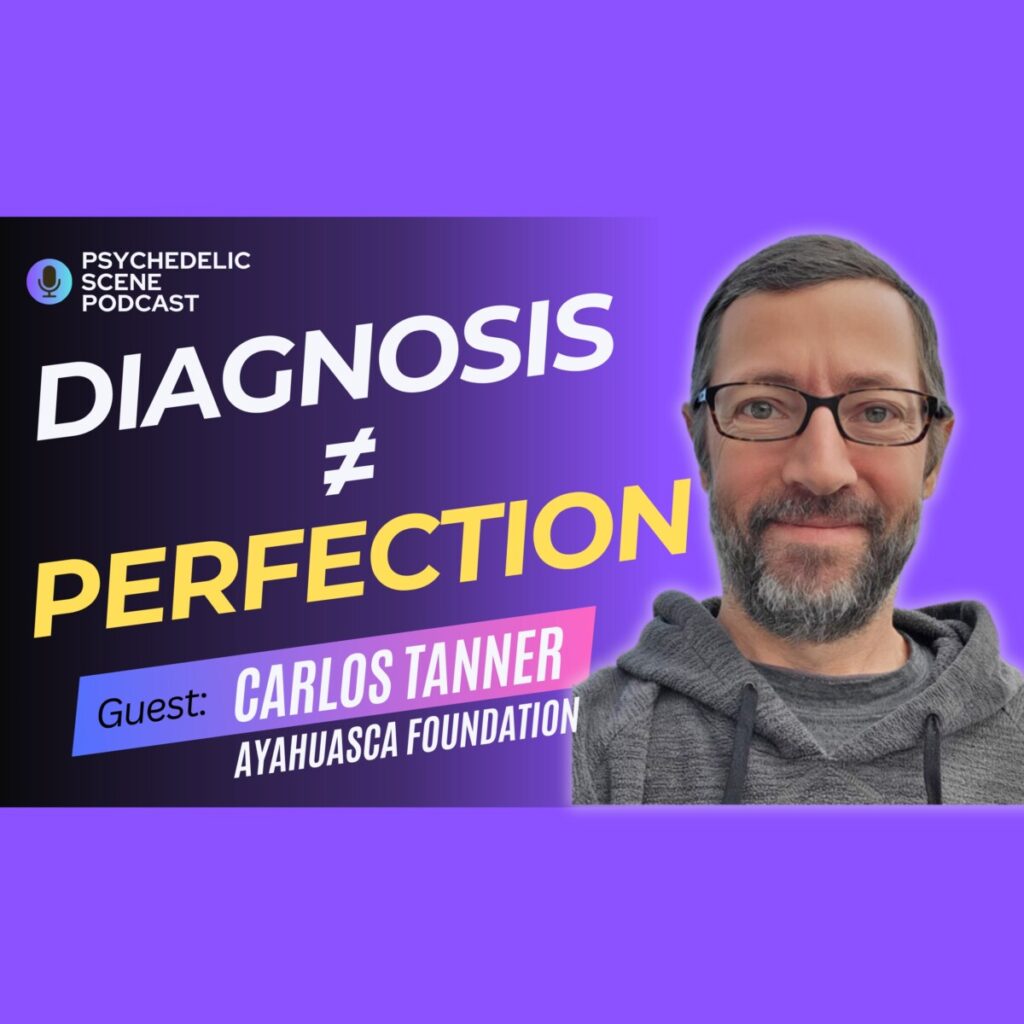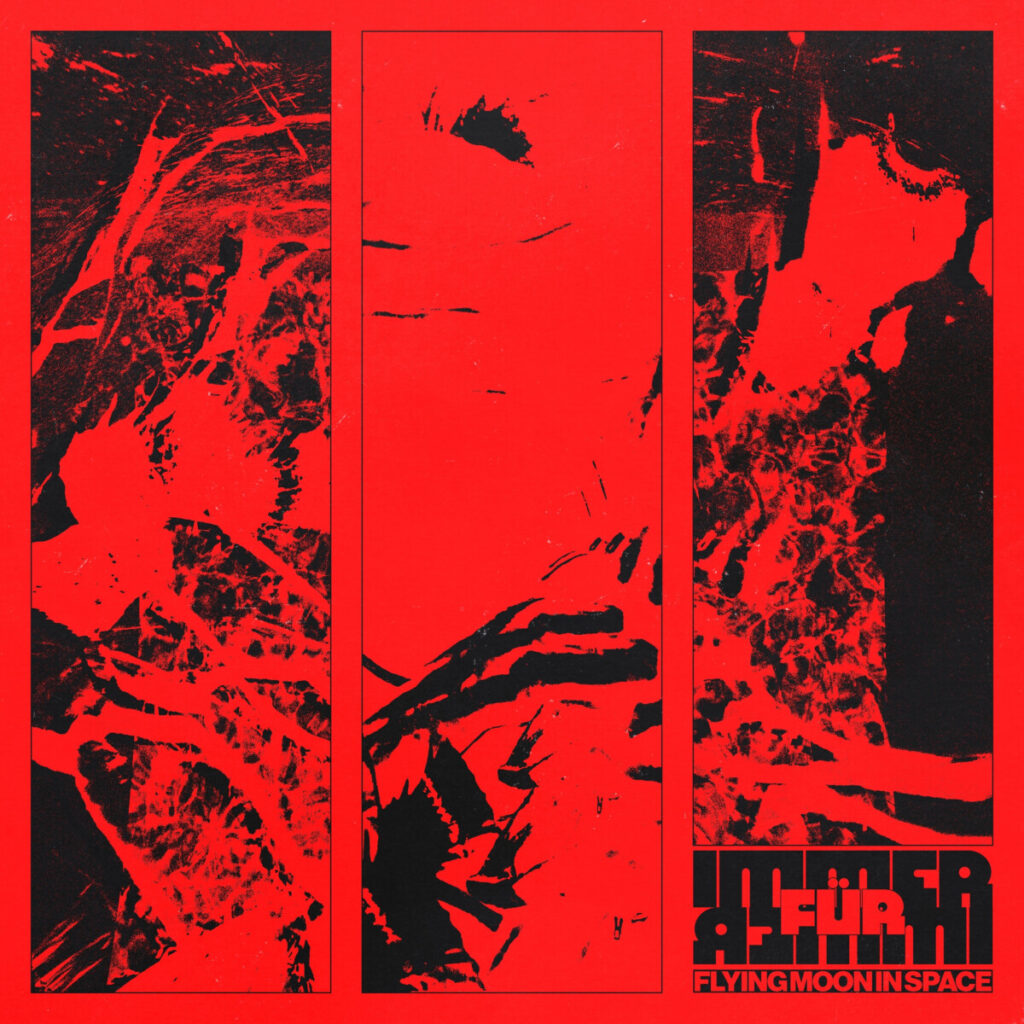Interview: Jorma Kaukonen
Interview: Jorma Kaukonen
Interview with Jorma Kaukonen for Psychedelic Scene Magazine
Bill Kurzenberger:
It’s an honor to be here with Jorma Kaukonen, legendary guitarist from Hot Tuna and the Jefferson Airplane. Hello, Jorma!
Jorma Kaukonen:
Hey, how are ya?
Kurzenberger:
Excellent. I’m doing great, thank you. And thank you so much for taking the time for this interview with Psychedelic Scene Magazine.
Kaukonen:
Awesome. So first of all let me ask you, where are you physically at this time?
Kurzenberger:
I’m here in Columbus… Columbus, Ohio.
Kaukonen:
Oh, hey you’re my neighbor to the north. I was up there yesterday with my daughter doing something, I went to get some noodles from Meshikou.
Kurzenberger:
Oh, OK. Nice. Yeah, just a short, I don’t know, 90 minutes or so. Actually, I was hoping to have the chance at some point to come down to Pomeroy to see you at Fur Peace, but of course with Covid, it’s… too soon.
Kaukonen:
Well, we’re not done yet. We’ve got… I noticed you guys didn’t get as much snow as we did. We got a bunch of snow down here.
Kurzenberger:
Yeah, we only got maybe six inches, it wasn’t too bad.
Kaukonen:
You know it’s hard to tell, I’d say eight to ten. So I, of course we live in the country, I’ve got a four-wheel drive mule thing with a plow but I did not put the chains on, which is why it snowed so much. I did put the chains on yesterday, so if it doesn’t snow for the rest of the year you can thank me.
Kurzenberger:
Sure, sure. You only have them when you don’t need them, and when you need them, you don’t have them.
Kaukonen:
How true, how true.
Kurzenberger:
Well, it’s been a joy watching you perform over the years, for me going back to the Further fests in ’96 and ’97.
Kaukonen:
Yeah, right man.
Kurzenberger:
I really dug your show with Hurl (John Hurlbut) at Natalie’s Music Hall in Grandview last week there.
Kaukonen:
You know, I did too. The Hurl and me thing is such an interesting thing. We’ve been friends for forty years, but you know… speaking of Hurl, don’t go away. (On the phone) Hey, Hurl. I’m doing a Zoom interview for an illustrious fellow from Columbus. What’s up?… Awesome, where are you?… Alright, well listen, we’re having a very important conversation about you right now.
John Hurlbut, on the phone:
Are you talking to Bill?
Kaukonen:
I am.
Hurlbut:
Oh, good. Tell him I said hi.
Kaukonen:
Hurl says hi.
Kurzenberger:
Ah, hi Hurl!
Kaukonen:
Alright, listen… bye. He brought me a croissant. See, that’s the kind of guy he is. So anyway, you know he’s a special guy. There’s just something that he brings to the table with his music, and we were sitting around… you know, we’ve been playing together off & on for years, and our little lunches down here, and all that kind of stuff. But when the Covid thing shut us down, and we were still doing a couple of little lunches every now and then, I thought… you know, I’d love to play with this guy, let’s us do a recording.
So I got Justin (Guip), the guy – he’s the drummer from Hot Tuna, but he’s also one of my production guys and stuff – so he brought the studio in a van down here, and I would’ve put the record out myself. But John is the most affable guy in the world, and he became really kind of close with the guys at Culture Factory, and they put the record out for us. Great package, and we’re… I think we’re thinking about Volume 3, because we’ve got a bunch of new songs now.
To be able to get out there and actually be in front of a living audience, and to do what it is that we love to do so much and to share with the audience and stuff, it’s important stuff. It really is.
Kurzenberger:
Oh, fantastic! The River Flows is just a gorgeous double album of Americana, it’s just a beautiful album. I was going to ask about that and how that all came about. That was recorded there at Fur Peace?
Kaukonen:
Yeah, it was recorded… the little room you see behind me, I’m in the library here, but the workshop is right across this little courtyard. It was in the workshop, and you know all our buildings are wood and stuff like that, so the sound is fantastic, and you know… it was a perfect storm for doing stuff like that. And the funny thing is, we complain about all the shit that we lost with Covid, and obviously we all wish it didn’t happen. But had it not been for Covid, Johnny and I probably wouldn’t have gotten the chance to do that.
Kurzenberger:
Right on. Well, it’s interesting how sometimes, situations that are negative have a way of bringing… something positive ends up coming out of it.
Kaukonen:
Absolutely, absolutely.
Kurzenberger:
It’s nice to see Hurl getting recognized for his talents too.
Kaukonen:
Yeah, I mean… it’s not like Hurl hasn’t been doing this all his life too. But he just… and he’s been a professional musician also. But he’s just never… you know, he’s been on the road with me a couple times already now, it’s kind of fun to see him go “so this is what it’s like?” I’m going, “welcome to my world.”
Kurzenberger:
And you guys were so comfortable playing together that show at Natalie’s…
Kaukonen:
Totally. Absolutely. And before we move on, and I think I wrote about this on the album, but one of the things that I really loved about getting the chance to – aside from the fact that I love him and his music – is, I have no responsibilities except to try and play the best music I can, and that’s kind of cool.
Kurzenberger:
You let him handle all of the lyrical… all the vocal duties and everything.
Kaukonen:
Totally. And the other thing that’s kind of funny too, you know, is that when you get onstage with Hurl, all of a sudden he’s like a chatty Cathy, you know. I have to kind of like, shut him up if I want to get a word in edgewise. It’s really funny, I love it.
Kurzenberger:
Ah, that’s great. Well, let’s see.. before we delve into your prolific career, could you tell us about what you have lined up for your fans in 2022?
Kaukonen:
Well, you know we have a lot of gigs coming up, and we’re really excited. We’ve got a lot of Hot Tuna stuff coming up, I’m going to be going down to meet Jack (Casady) in Florida in a couple weeks. And I’ve got a lot of solo stuff. You know, we’re just so thrilled to be able to get back on the road. And since you were at Natalie’s, I know you can feel this too. Because I’ve done a couple little tours already… there’s an appreciation from both sides of the stage, for us performers and the audience. Because you kind of… you’re on the road for years, you just kind of take that process for granted. But I don’t think any of us take that for granted anymore. So to be able to get out there and actually be in front of a living audience, and to do what it is that we love to do so much and to share with the audience and stuff, it’s important stuff. It really is.
Kurzenberger:
Absolutely. It’s kind of a carpe diem type of situation. We just don’t know if any show… shows could be cancelled due to Covid, we just don’t know what’s going to happen, and it seems like… I agree that on both sides the performers and the audience have a new appreciation for the fact that this is a special moment that may never happen again.
With Airplane, as much as I enjoyed playing with those folks, the band meetings were loathsome. Loathsome!
Kaukonen:
I agree. I totally agree. And since we’re all sort of like native locals and stuff like that, I just can’t say too much about Natalie’s. I love all the folks, and yeah – it’s good stuff.
Kurzenberger:
Absolutely. I love what Charlie and they were able to do, and the fact that they were able to keep music going safely.
Kaukonen:
Oh yeah, they’re not fooling around. You know, without getting into this discussion, there’s not everybody that takes that safety as serious as some of us do. And I gotta say, Charlie and Natalie’s… I just felt great working for them, I really did.
Kurzenberger:
That was a special night.
Kaukonen:
Yep. I can hardly wait for the next one. And, you get great pizza too. Ah – the meatballs. The meatball.
Kurzenberger:
I haven’t tried it. I will have to.
Kaukonen:
The meatball’s the size of a baseball. It’s good stuff. Yeah, you won’t eat more than one.
Kurzenberger:
Meatballs as big as your head, right? Well, I see that you’re also… Hot Tuna is also touring with Little Feat this summer.
Kaukonen:
Yeah, so we’re excited about that too. You know obviously all of us, we miss Paul Barrere, and the whole deal. He was such a really, really great guy. But the Little Feat thing, it’s… Little Feat is a state of mind. And I’m really glad that they’re continuing, and that they’ve cut us in on this. So when we got the gig to do this with them, Little Feat’s such a big band, you know, and even though Electric Hot Tuna is only a trio, what we decided to do is we’re gonna play acoustic instruments, but standing up. That way, we can shuffle on and off, set changes will be easy. So I’ll be playing that guitar that you saw me playing at Natalie’s the other night, but I’ll be plugged in and stuff like that. Jack will play an electric bass, not his acoustic bass. And Justin will play a small set of drums, and that way we can shuffle in and out. And of course, you know that we’ll be cut in for the big jam sessions and stuff like that, so of course I will be bringing… I may not bring my Marshall with me, but I’ll be OK, I’ll bring an amp that’s loud enough, trust me on that.
Kurzenberger:
Nice. Yeah, I’ve noticed that over the years with Hot Tuna you’ve gone back and forth, you know, acoustic to electric back to acoustic, sometimes both in the same night, switching back and forth. What’s your motivating factor in deciding the instrumentation – does the setlist decide the instrumentation, or does the instrumentation decide the setlist?
Kaukonen:
Honestly, you know, we did some stuff in the past where we would split the show up with acoustic and electric, where we were just starting to get back into playing electric again. I find that I’m not particularly fond of that as a show. I like to do either one or the other, and one of the things I think that dictates whether you do one or the other, to be honest with you, is how much you’re getting paid. You know, in other words, ‘cause otherwise if we’re doing a bus, you gotta have a trailer for electric equipment and stuff like that. So there’s a lot of factors. Me and Jack, and Justin too, we’re lucky because we love them both, you know, we love being able to do both of them. There is a certain… there are some songs that I would only do electric because they just tend not to work as well acoustically. Although, interestingly enough, with the pandemic stuff where we’re like dredging stuff out of the attics of my mind, a song like “Ode to Billy Dean,” it’s sort of a slow A minor blues song which I always did electrically, I found out that to do it extremely sparsely acoustically actually works too. So you never know. But there some things that just need to be more bombastic. And so with an electric show, we can do a lot of the songs that are also done acoustically, but with an acoustic show there’s some of the electric songs that just don’t work so well.
Kurzenberger:
Sure, that makes sense. I see that you also finally get to celebrate your 80th birthday with a concert at Carnegie Hall.
Kaukonen:
Yeah, better late than never! Better late than never. (Laughs)
Kurzenberger:
Well, what do you have planned for the occasion?
Kaukonen:
OK, so we’re going to be at Carnegie Hall, which is an interesting beast. Carnegie Hall now requires booster shots, which OK, I’ve already got mine and I’ll get the next one when I need it, and so this offends a lot of people. But, oh well, that’s how it is. Anyway, sorry. You almost got me started there.
Kurzenberger:
No, please feel free.
Kaukonen:
No, but anyway, so yeah, Carnegie Hall. So what we’re gonna do, among other things, is we’re going to reprise Burgers, the album Burgers, in its entirety. And of course, Papa John (Creach) may he rest in peace, is no longer with us, but I know Larry Campbell. And so, Larry will be playing all the Papa John songs on the violin, or the fiddle. You know the difference between a violin and a fiddle?
Kurzenberger:
The bow? No.
Kaukonen:
A violin has never had beer spilled on it.
(Kurzenberger, laughing)
Kaukonen:
Anyway, so… barroom jokes, barroom jokes. Yeah, so Larry will be doing all that kind of stuff. Now, we’ve got his lovely wife Teresa (Williams) on board also. So hopefully, I’m gonna get a chance to do some rehearsing with Teresa, ‘cause I’ve written a couple of new songs that I could hear her voice on harmony. But we are, in its entirety, unbroken, we’re gonna do the Burgers thing as it is on the record, and we’re then hopefully we gotta bunch of other stuff too. Now Carnegie Hall is one of these – unlike the Beacon – they’re not elastic about playing over time. So whatever they have allotted us on time, I’m going to be scripting things carefully, because… because it’s really expensive if you go over. It’s New York.
I had this sort of like East Coast elitism kind of stuff, I figured you know, ‘cause I spent some time in New York, I’ll go to the Bay Area, and I’ll show these yokels what real folk music and blues is like.
Kurzenberger:
Wow, well that sounds like a lot of fun that you get to recreate your Burgers album in entirety. Yikes!
Kaukonen:
Yikes, indeed!
Kurzenberger:
Well, you were talking a little bit about Jack, and looking back through your career, one constant it seems like has been your lifelong bandmate Jack. Could you tell us about your sixty-year bond with Jack?
Kaukonen:
Sure. So, it’s just one of those things, you just never know. I met the Casady family in ’56. My dad was in the service, so we came back from overseas, I met the Casady family. I started out being friends with Jack’s older brother, and he actually turned me on to Chicago blues.
Kurzenberger:
Chick?
Kaukonen:
Yeah, Chick. He’s extremely… yeah, and Jack’s mom used to make me sandwiches all the time, so she was like my second mom in a lot of ways. But anyway, so Jack and I, you know we’d just been buddies forever. And we started playing music together… it’s funny, people talk about… like my teenage daughter, you know, she sometimes talks about a career and stuff like that. I didn’t even know what the word career meant when I was that age, you know, but I always loved playing the guitar. So Jack and I, we just gravitated together because we both played instruments, and kind of one thing… none of this was never planned, one thing led to another. And one of the things that both of us find so interesting, is that in all the years, we’re really… if we had Jack in this interview together, you’d get all kinds of different opinions from him because we’re really different guys. But we, you know we disagree about a lot of stuff, but we’ve never had an argument. We’ve never had a band meeting – with Airplane, as much as I enjoyed playing with those folks, the band meetings were loathsome. Loathsome! And anybody that’s been in a big rock-n-roll band will know exactly what I’m talking about. And we’ve just always gotten along, and you know, we bring different things to the table, we’re not afraid to try stuff. If it works, great. If it doesn’t work, hey, nobody died, and you know, we’re still just buddies. And you wonder, why? The answer is, I don’t know. But we are.
Kurzenberger:
Wow. Well, he’s just such a fantastic bassist, one of the best and baddest rock bassists of all time.
Kaukonen:
I agree.
Kurzenberger:
I didn’t realize though that it was his brother Chick that taught you the blues.
Kaukonen:
Oh, yeah, So Chick, he’s… again, it’s an interesting story. You know, Chick was like… remember Maynard Krebs in the old Dobie Gillis show? Maynard Krebs is the beatnik. Look it up, Google it when you’re done. And, Bob Denver I think was the Maynard Krebs character. So in any case, Chick is a little bit older than me, when he was getting out of high school he grew this little goatee, which back in those days was like… I mean – look, you just can’t imagine what notice – nobody would notice – you know, “you call that a beard?” People went crazy when Chick grew that beard, you know. So he was kind of like a beatnik kind of guy, and along with that went folk music and this and that. I remember he had a banjo but he never learned to play it, he just made irritating noises on it.
But he had a huge and really interesting record collection. And so, we just spent a lot of time listening to stuff. So I got turned on to stuff that, to be honest with you, I may never have heard of like that before. I mean, all the classic Chess recordings, you know, and he turned me on to Sidney Bechet, a lot of the New Orleans guys and stuff like that. That’s what he did, so I owe him a debt of gratitude to turn me on to the music – and sharing his little brother with me.
Kurzenberger:
Right, right. And then he moved on to college, so Jack was still there, so you got to start the Triumphs with Jack…
Kaukonen:
Well actually, Chick joined the Army – that’s a story too. So back in those days, I’m trying to think. I guess he probably joined the Army… he graduated in ’58, and I think he joined the Army in ’59. Dangerous time to be in the Army, because of Vietnam coming. However, he and this other guy, one of our other guys that was of his class, this guy Hugh Frost. They joined the Army on “the buddy system,” they were supposed to go to the same place. Chick went to somewhere in the Carolinas, and they sent Hugh to Alaska. Some buddy system! But neither of them went to Vietnam, so that’s a good thing.
Kurzenberger:
That’s good. So you started the Triumphs with Jack back in high school, and then you moved from DC to Yellow Springs right here in Ohio for college.
Kaukonen:
Correct.
Kurzenberger:
Then you moved to San Francisco in 1962, and it seems like you were way ahead of the curve moving to San Fran before it became a musical mecca. What prompted your early move there?
Kaukonen:
Well, I… you know, one of the things, I’m one of these guys who wound up graduating college kind of in spite of themselves, and I think that two things kind of kept me in school. One, my parents expected it of me, and there was that back in that era, but the other thing was, everyone was getting drafted and sent to Vietnam. If you stayed in school, you got a 2-S deferment. So that was kind of like an important thing to have, before I realized that you can actually be unfit for service, but that’s another story. So I got accepted to, my dad again we’re stationed in the Philippines, I went to this Jesuit school there after Antioch for a year, and I got all these weird, you know to miss all the Jesuit philosophy and all this kind of shit that nothing but another Jesuit school would take. And one of the guys that was one of my teachers there was going to San Francisco University, which is a Jesuit school in San Francisco.
Now I’d been reading Kerouac and all this stuff; San Francisco just looked like a cool place to go. But my grades weren’t good enough to get into University of San Francisco, but I did get into Santa Clara down the peninsula, another Jesuit school. My dad complained about fifteen hundred dollars a semester back then; I think it’s eighty thousand dollars now. But that’s a whole ‘nother story.
So anyway, I wound up in Santa Clara. And you know, the whole scene that you alluded to, none of that had happened yet. But the Bay Area has always been a cool place. You know, one of the things before I continue, one of the reasons we all moved to San Francisco – ‘cause I lived down the peninsula – San Francisco was a cheap place to live back then! Which of course we know is not the case at all today. But anyway, so I moved to California, and I remember coming from the East Coast, I had this sort of like East Coast elitism kind of stuff, I figured you know, ‘cause I spent some time in New York, I’ll go to the Bay Area, and I’ll show these yokels what real folk music and blues is like. And of course, needless to say, that was utter nonsense, because the whole Bay Area was populated by incredibly talented people. I mean Jerry Garcia was one of the luminaries when I moved there, but there were so many, most of them have passed away now.
But the Bay Area scene was an unbelievable scene for that – for music in general, but especially acoustic music – blues, folk music, bluegrass, all that kind of stuff. And there were literally dozens of really, really good people, so all of a sudden I’m surrounded in an incredibly, you know for the most part, nurturing environment of being this idiot kid from the DC area, you know, and all of a sudden I’m realizing, wow! And I just learned so much from all these people, and they pretty much welcomed me into the scene as soon as I got there.
Photo taken from Zoom Interview
Kurzenberger:
Nice. You went out there kind of expecting to be somewhat of a teacher, and instead you became a student.
Kaukonen:
Boy, you can say that again.
Kurzenberger:
What an amazing time that must have been performing around the Haight, alongside Marty, and Paul, and Jerry, and Pigpen, and Janis, and Crosby…
Kaukonen:
So the whole music scene back then, you know when I got there in ’62, pretty much… you know, none of us had cars, so the scenes were sort of insulated. So my friend Tom Hobson, he was a San Francisco guy, and there’s a lot of other guys. Jerry was a Palo Alto guy, my friend Steve Talbot and Bill Bond, some of these guys that nobody’s ever heard of were from Berkeley, et cetera, et cetera. So actually when you went, I mean it was actually like going to another state, if you went to San Francisco. You know later on of course, when everybody got cars and stuff we drove around a bit more, but the thing was that the scenes were very interesting. You know, the San Jose folk music scene sort of evolved as an island unto itself. You know, Kantner was huge, was one of the prime movers of that, a bunch of other people that are no longer with us. Jerry certainly was one of the lead movers in the Palo Alto area. You know, my mind is, I’m having a huge brain fart here. New Riders of the Purple Sage, Dave, uh… help me here.
Kurzenberger:
Marmaduke… oh, David Nelson?
Kaukonen:
Pardon? Yes! Dave Nelson. Yeah, he was one of those guys back then too, I mean, he was a heavyweight performer before we really knew what a heavyweight was. Anyway, but the scene was unbelievable, really. There were lots of places to play – not a lot of places to make money playing – you know actually, that’s why so many of us took to teaching, ‘cause you could make money doing that. But there was lots of bars and coffeehouses, and actually we ended up getting to play all the time, which was really cool.
Kurzenberger:
Nice! So if you weren’t driving cars, were you going around on your motorcycle getting to gigs that way?
Kaukonen:
Back then, I remember I had a thing called a… Harley Davidson made a forgettable scooter called a Topper that somebody gave me, but I didn’t have any license plates for it, nor a title. So I could drive it around the area and not worry about getting stopped, but you couldn’t go anywhere. No, we took the Greyhound. Yeah, we took the bus!
Kurzenberger:
Well, some classic blues songwriting material there.
Kaukonen:
Totally.
Kurzenberger:
So, you formed Jefferson Airplane with Marty & Paul in ’65, and suddenly the music started to get pretty psychedelic when LSD entered the equation.
Kaukonen:
Sure. I mean, so many really interesting things happened back then. I mean, you couldn’t… before it happened if you were gonna write a movie about the future, you could never come up with this shit in a million years. So you gotta remember that LSD was legal back in those days. Pot, on the other hand, and again, you know it’s been a while since I’ve gotten high, that’s another story unto itself, but I’ve smoked a lot of pot. Even back then, we knew that stuff was incredible shit. You could go to jail for twenty years for smoking that shit, and it was shit! You know, seeds, stems, the whole nine yards. But LSD was legal, interesting stuff. So you know, all of a sudden for whatever reason… San Francisco’s always been sort of an interesting magnet for oddballs and stuff like that, I mean it wasn’t just the beats, it’s always been weird stuff going on.
Kantner moved up to San Francisco because they had a more active “commercial” folk scene, which is what he was interested in. And he met Marty, and Signe, our first girl singer, and stuff like that. And so all of a sudden, some stuff was starting to happen. And you wonder – why was it happening? And the answer is who knows? I’m sure acid had a lot to do with it, I don’t think there’s any question about it, but one of the other things was also… and it’s hard to think about this when you think about how ridiculously expensive San Francisco is today. San Francisco’s a small town. It physically can’t get any bigger, I mean it grows up now, but back then, I think the tallest building in San Francisco in ’65, this is way before the TransAmerica, I think was like an eight-story building, ‘cause they couldn’t build tall buildings ‘cause of the earthquake stuff. So mostly it was a low-rise town, little apartments, Victorian apartments, stuff like that.
But there was a community of artists of all sorts, not just musicians, and everybody kind of worked together. I mean, you know, this many years after the fact, I mean this is before “hippies” too, before that word even existed, but what did all that mean? And the answer is, who knows? I mean who knows, really? But I remember a band like the Charlatans, well worth looking into and if you haven’t seen their documentary Rocking It At The Red Dog, you gotta check that out sometime. Because they were actually one of the first San Francisco bands to be a band and to get visibility, before the Airplane. But anyway, people owned stores and this and that, it was a very productive artistic community in a lot of ways. So it was just waiting for this to happen. The fact that the music grew and expanded beyond the regions of the Bay Area… who knows? It was a miracle, you know? Again, I have no doubt that the drug culture had a lot to do with it.
Kurzenberger:
Sure. But it seemed like it was this new Renaissance… I mean, how amazing that must have been to be a part of that unprecedented explosion of creativity.
Kaukonen:
I mean, if you think about a guy my age, my metaphor for this is: Until 1964 or 65, the world was monochromatic. After that, it was in technicolor.
Bill Kurzenberger
Kurzenberger:
Sure. Well, and you were in your twenties, all of you were in your twenties, and suddenly you’re composing the songs that became the soundtrack of the late 60’s. Songs that are, like, etched into the fabric of our lives. How did it feel to be changing the world at such a young age – or when did you realize you were making an impact?
Kaukonen:
You know, I don’t think any of us realized – most certainly not myself didn’t realize it at the time. But interestingly enough, before we started this Zoom thing today I was pottering around for some reason or another, I grabbed my phone and I went to Volunteers and I listened to “We Can Be Together.” You know, this is not a light piece of pop fluff, it really isn’t, and there’s like seven different musical parts to this song. I mean I’m going, who can even think of that stuff like that, really? You know, we were just in the flow of so much stuff going on, and you know, I wasn’t really writing songs back in those days – except for “Embryonic Journey,” that doesn’t have lyrics – but think of the writers. Paul, Marty, Grace later on. You know not a lot of others, local people, all of a sudden, the San Francisco gang was writing their own stuff. And nobody gave a shit about whether it was “commercial” or not.
You know, the Airplane is such an interesting beast. Everybody’s trying to find out ways, how can we somehow… because we have a legacy company that manages the Airplane stuff, and they’re always trying to figure out how can we do with the Airplane what’s happened to Hendrix and the Doors? And I keep telling the guys that do it – listen man, I think the Airplane legacy deserves to live, I think for a lot of reasons, and not just because we had two hits, it was a very interesting band. But for that reason, it’s very hard to put your finger on what the deal was. You know, people go “how about a movie about Jefferson Airplane?” I go, come on… I could more see an anime thing about it. I just don’t see… I just don’t see it. I don’t know, hard to say.
But anyway, all these really talented people, you know, that had no boundaries about what was happening in the commercial world. You know, the fact that we lucked in with two hits – which Grace brought from Grace Society, by the way – you know, all of a sudden gave us a bunch of power in an extremely establishment record company, and from that moment on we did exactly what we wanted to do, and we never gave a shit about what they wanted us to do. I mean, they wanted us to do shit that… they wanted us to wear uniforms, they wanted to do this, and we basically just said “fuck you,” we’re not doing that, this is what we’re gonna do. And we weren’t the only band that did that, I mean the Grateful Dead certainly marched to their own drummer. Big Brother, same thing.
Kurzenberger:
It must’ve been nice to have that freedom, and not be tethered by what the record company wanted you to do.
Kaukonen:
Lucky. Totally. I mean think about this also, I can’t say too many times how lucky I am. Jefferson Airplane – here’s a band that got together – our first gig was on Friday the 13th, August 1965, and by 1966 we had a record deal with a major record company. I mean, how often does that happen? The answer is never.
Kurzenberger:
A meteoric rise.
Kaukonen:
Somebody was looking out for us.
Kurzenberger:
And then in just a couple of years, you were performing at some of the most legendary concerts of all time. Could you tell us maybe just a few words about some of them, like Monterey Pop?
Kaukonen:
Sure. So Monterey Pop, that was such an interesting beast, because there’d been folk festivals – I played at two of the Monterey Folk Festivals – and there’d been jazz festivals, but nobody’d really had a rock-n-roll… Monterey Pop was really a rock-n-roll festival. But, one of the most interesting ones – I mean look at the lineup of people – Ravi Shankar, Otis Redding, us, just all kinds of stuff, you know. So that was the first one. What an interesting animal. And also, if for some reason you’re ever in California, drive around and have nothing to do, go to the Monterey County, the Monterey Folk, I mean Fairgrounds… it’s tiny. I have no idea how many people were at Monterey Pop, but compared to the big ones later on, it was 20,000 people maybe, who knows, you know. But that was a big deal. All of a sudden, then we’re getting some kind of respect in an art form, that we considered was an art form, but nobody was really taking rock-n-roll seriously. And then they did the movie. Which, all of a sudden, we’re in a movie!
You know, and then people started having festivals, you know, the big three – Monterey, Woodstock and Altamont, of course – but there were lots of other big festivals too. I mean, I remember we did, right before Altamont we did the West Palm Beach Festival with the Stones, and before Woodstock we did the Atlantic City one, Janis was on that show, so all of a sudden there’s just stuff going on.
And also, I don’t think I’ve really emphasized this much, being young has a lot to do with that also, it really does, you know. ‘Cause that’s just the deal. You know like my daughter, my daughter went to some summer camp in upstate New York, I don’t know four or five years ago, and of course we drove by Woodstock and I took her to the museum, you know, she looks at these pictures, she goes, she’s horrified. “Did you really go out dressed like that?” I’m going, “everybody dressed like that!” These aren’t stage clothes, that was just the deal, you know.
Kurzenberger:
Yeah, right? It was the style at the time.
Kaukonen:
But yeah, anyhow, interesting stuff. So all of a sudden, all of a sudden you come from – because San Francisco was a moderately small city back in those days – and all of a sudden you have a voice, you know, an international voice. I mean, you can’t script stuff like that. You know looking back on it, it’s like a guy like me recognizes the miracle of what was happening. At the time, I think that when you’re in the flow of all that, and you’re young, you almost just take it as your due, you deserve that, you know. And you can enjoy that as long as you want to, but all of a sudden you realize – nah, you didn’t deserve it, you got lucky.
Kurzenberger:
So to an extent, do you feel like you were in the right place at the right time there in San Fran?
Kaukonen:
Absolutely, absolutely. I couldn’t have been in a better place.
Kurzenberger:
Still, it seems like you kind of knew which way the wind was blowing. You were… you were ahead of the curve, you got out there early.
Kaukonen:
I mean think about it, just thinking about ‘cause both of us live in Ohio. Think about an Ohio band like Glass Harp, you know, a truly, truly great band. Had it not been for Cream, Glass Harp could have been them, you know? Had they been in San Francisco, everybody would know about Glass Harp. I mean, you know, it’s just the luck of the draw, really.
Kurzenberger:
Right. And is it Phil Keaggy?
Kaukonen:
Phil Keaggy, yeah. He lives in Nashville now. (crosstalk) I’m trying to think about… Sferra, I think is the… I should know all these guys too. One of the guys, I think the drummer’s son played with Tedeschi Trucks for a while, I don’t know. Great bunch of musicians, I mean really stellar bunch of musicians, all of them, you know. Yeah, Phil lives in Nashville, the other guys still live up in Cleveland.
Kurzenberger:
Well, that’s a good example of how you can have all the talent in the world, but if you’re not necessarily in a place where you’re not going to get recognized, it doesn’t necessarily translate.
Kaukonen:
Yeah. You know that being said, there’s a lot of ways to be successful in life, you know? And you know, just because you’re not a figure on the world stage doesn’t mean you’re a failure by any stretch of the imagination. But yeah, I mean all of us, and if that happens to ya, you gotta recognize that – man, did I step in shit this time!
Kurzenberger:
Well, you had mentioned Altamont when you were talking about the big three. And I’m curious, what was it like to have such a high point in your career contrasted by that dark moment, which it seems like really affected Airplane?
Kaukonen:
Right. Yeah, so there’s so much second guessing about that after the fact, and you know, I’m sure this many years later nobody needs another opinion, but I mean, look. This many years later… the whole thing was just ill thought out. “Well, yeah!” You know, and I was just… some recent pictures have just popped up and I’m looking at… and I go, you know, it’s just hard to imagine that this was allowed to happen, but it did. Because a lot of things were allowed to happen back in those days. I think there’s no question… I mean, Monterey, Monterey was extremely well run. I mean, all those L.A. guys that put it together, they just did a great job. And it was small, but it was doable.
Woodstock – Michael Lang just passed away recently, may he rest in peace – but anyway, Woodstock, everybody… it could have been worse. You know, I’m sure everybody didn’t have a great time there, but in retrospect it’s like one of these iconic festivals. Although if somebody’s going, you know “well, what did you think of Woodstock?” I go, well look, just like I told my daughter, I’ll never play in front of half a million people again as long as I live. That’s just the deal, you know? And if you had a good time at Woodstock, it was a great deal. But in that era of festivals, like backstage there were like zero amenities. You know, all this business about catering…catering, what’s that? You know, it’s like I’ll settle for a port-a-potty.
Kurzenberger:
There were no riders back then, right?
Kaukonen:
No, none of that stuff existed, that was all in the future.
Kurzenberger:
Well, while we still have time I wanted to get to Fur Peace Ranch. So, you’ve been a guitar teacher for over fifty years, from the early days in San Francisco, and now your own guitar school at Fur Peace you’ve had for the past couple decades. Could you tell us about what Fur Peace has to offer?
Kaukonen:
Sure. So, I looked into this piece of property in ’89, which was really why I moved to Ohio. And I’ve been here ever since, and I’m not going anywhere. So we have this hundred-something acre… I live in southeast Ohio, it’s really pretty down here, et cetera, et cetera. So we wound up opening in ’98, and we have… the whole thing is that I always loved to teach, and had it not been for my wife Vanessa none of this would’ve gotten done. Vanessa gets things done!
You know, I’m a guitar player. If it’d been up to me, I would’ve been out by the campfire with my guitar and a bale of hay, you know? But anyhow, so we have all these buildings, and quite a lot of infrastructure, stuff like that. And so over the last almost two and a half decades, you know, we’ve really just been trying to make the learning experience as unintimidating as possible. And to make… you know, because to me, music is an interesting beast, you know? But it doesn’t have to be mystifying or complex. Some music is very hard to play. I personally don’t happen to think the kind of music that I play is hard to play. It takes time to learn how to do it, but I mean, you don’t need to live with some monk in Tibet for half your life in order to grok what’s going on, you know?
But anyhow, so yeah, so over the last couple decades we’ve been doing – we’re sort of a seasonal thing here – we’ve been doing this camp. Now, Covid has changed everything. We tried to do some in-person stuff during the pandemic, and we were lucky. You know, my wife, we were sanitizing stuff, we got the blue lights in the ceiling, we got all that stuff. It just… nobody was comfortable, it just really wasn’t working out. So right now, I’m doing most of the stuff I’m doing is online. This year, we actually only have two in-person things. It’s a work in progress, we’re gonna have to see what’s going on.
But you alluded to this, and I agree completely. I love to teach, and I always have. You know, my students go, “man, you’re so patient.” I’m really not patient. I’m not a patient guy. But I don’t find it frustrating saying / teaching the same thing over and over again. I mean, it’s just… I’m a slow learner, you know being able to demystify that process, I just really love it, I really do, and I don’t… it doesn’t require patience on my part.
We’ve been lucky. We have so many great teachers that’ve been coming through our doors since we’ve been open, and hopefully this will continue. Like I said, thanks to the pandemic it’s a work in progress. We’ll see what’s gonna happen.
Kurzenberger:
Well, it’s nice that you’re able to keep the lessons going virtually online. That’s really important for young guitarists who might be able to learn from you. Oh, and Fur Peace also doubles as a concert venue as well?
Kaukonen:
Correct. That’s one of the things we’re going to be doing this year. We are doing lots of concerts, we’re doing a lot of concerts, and you can go to our website, furpeaceranch.com – f u r p e a c e, ‘cause it’s a fur peace from anywhere – furpeaceranch.com, and we’re doing lots of shows. And, you know over the quarantine we’re doing those free quarantine shows. We just did one last week, me and Hurl, we’re gonna do more of those again I think, and you know, we just try to keep our connection live with the people.
And like we mentioned earlier in this interview, I’ve got a lot of gigs coming up this year too. So, so far so good.
Kurzenberger:
Nice. Well yeah, those quarantunes sessions, those have been a huge hit with your fans on social media. Your Facebook page – man, what an incredibly supportive group of fans you have.
Kaukonen:
Yeah. Of course, they are free. Yeah, one of the things we love about that is like, you know when we were doing the shows, one of the things we do, it’s not really a concert, it’s like a variety show. Vanessa and I bullshit about stuff, and this and that, and not everyone wants to hear us. But when they complain I go, “well you can ask for your money back… oh wait a minute, it’s free!” We have a good time with it, we have a good time with it.
Kurzenberger:
Nice! Fantastic. Well let’s see… I wanted to mention that I was reading your autobiography Been So Long, and wow, it has some really fascinating stories about your travels around the world. Your ancestral lands in Finland, and the Pyramids in Egypt, and Greece, and Pakistan. What’s your favorite destination, or what’s the most interesting place where you’ve ever traveled or performed?
Kaukonen:
Wow. Hmm, that’s interesting. Hmm, that’s a really good question. You know, I kind of… I don’t have a really good answer for it, and I wish I could just hone in on one thing. But I like traveling, you know ‘cause my dad was in the service, I’ve traveled all my life. One of the things that happened, just as a little sidebar here, I’ve never been around my family this long, in all the years I’ve been married. Or my kids, they’re not, you know. So it’s kind of interesting to spend this much time at home, ‘cause I’m just used to being out and traveling. So, gosh, that’s a good one.
I think one of the things that just comes to mind now is that, you know over the years I’ve been able to tour in Italy a lot. I really like Italy, not just ‘cause of the food, I love that, obviously. But Italy is such a music-loving culture in general. So I remember, it’s gotta be fifteen years ago now, but we were somewhere, somewhere on the west coast of Italy. This is a concert back when the Italian government sponsored lots of shows and stuff like that for people, nobody’s got any money now, but we did this show somewhere, I can’t remember the name of the town, but it was like this Roman ruin on top of a mountain on the west coast of Italy. I mean, what’s not to like, you know? And I remember in order to get there, they had to drag us up in these like little carts and stuff like that, and you get up to the top, and there’s this Roman ruin, they had a sound system, and we did a show, and it was a full moon that night. That’s one of those, that’s one of those things that just like, you know just visually, and the mood of the people because the Italians are a great audience, you know. And just being on top of that mountain on that… who knows how many thousands of years old that Roman ruin was, with a full moon, and the ocean… it’s a good gig. It’s a good gig.
Kurzenberger:
Wow, that sounds incredibly picturesque.
Kaukonen:
Yeah.
Kurzenberger:
Fantastic. Well, I… wow. I really appreciate your taking the time to sit down for this interview, and you know, I think that’s all the questions that I had in mind. I was afraid that we were going to run out of time, and I’m glad to have mostly gotten through all of them.
Kaukonen:
Well, I’m glad everything worked out fine, we’re always glad when things work out fine. Well, you know where to find me, I’m about, you know, about 90 miles away. And if I don’t see you down here, I’ll probably see you up at Natalie’s again, because I love that place.
Kurzenberger:
I hope so. I hope so, and who knows, maybe one of these days, yeah I would love to get down to attend a concert or even a class sometime down at Fur Peace.
Kaukonen:
Absolutely. Well, you know who to get a hold of.
Kurzenberger:
Thank you so much, Jorma. I really appreciate your time, and taking the time for this interview with Psychedelic Scene Magazine! And have a wonderful 2022, and a belated happy 80th birthday that you get to finally celebrate, and 81!
Kaukonen:
Better late than never. Well, cool man. Listen, have a great day, and we’ll be talking again sometime, I’m sure.
Kurzenberger:
Thank you, that’d be great. Thank you so much. Live long and prosper.
Kaukonen:
Yeah, exactly. Well done. I’m outta here.
Jorma Kaukonen’s official website:
http://jormakaukonen.com/
Hot Tuna tour dates and official website:
http://hottuna.com/
Fur Peace Ranch official website:
https://furpeaceranch.com/
Gallery
Recent Articles
Can Molly Mend Your Marriage?
•
February 16, 2026
Immer Für Immer by Flying Moon in Space–Album Review
•
February 13, 2026

Loading...
